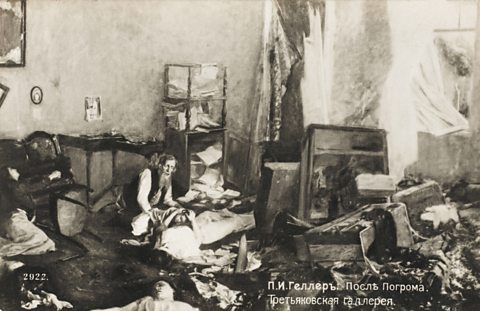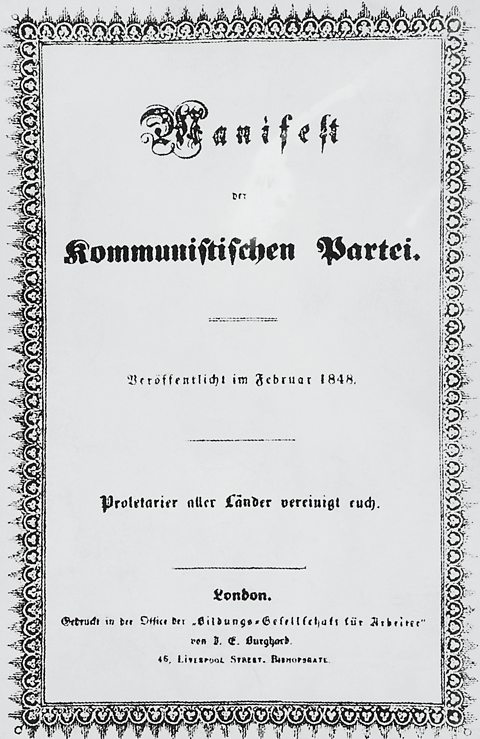Long term cause - Political problems
Unpopular Tsarist policies

Many were unhappy with the political conditions in Russia:
- Ethnic minorities were greatly oppressed by the policies of Russification
- Jewish people were persecuted by state-sanctioned pogroms
- The influence of Zemstvas (provincial governing bodies) was reduced
- In 1900 officials criticising the government were purged
- Middle class industrialists were unhappy that they had no say in how the country was governed
- Increased industrialisation and urbanisation had led to major social and economic problems for workers and peasants
This discontent provided revolutionary groups with a bed of support that could potentially be used to create change.
Sources of opposition
Liberals
The provincial Zemstvas were often highly critical of Tsarist policies. They cited famine and industrial stagnation as major problems that the government was responsible for.
The lack of power they had to influence decision-making at a national level also frustrated them. They wanted the introduction of a state Duma (Parliament) which would advise the Tsar.
The Union of Liberation was formed in St Petersburg in 1904 under the guidance of Liberal politician Peter Struve. The Union pushed for a constitutional monarchy with enfranchisement (the right to vote) for all men.
Radicals
Radical opposition groups often carried out political assassinations. The PeopleÔÇÖs Will tried to assassinate Alexander III in 1887. Populism existed in the universities. The Narodnik socialist movement tried to persuade the peasants to rise against the Tsar and take power for themselves.
The development of Marxism

From the 1880s, Marxist ideas began to spread through Russia. Based on the theories of the German economist Karl Marx, they proposed that the proletariat - the underclass of society - would rise up in rebellion and seize power from the wealthy ruling class and establish a fairer society.
Social Revolutionaries
The Socialist Revolutionaries adopted a combination of Marxist and Populist beliefs. They wanted to overthrow the government in favour of giving power to the peasants.
Although they were greatly uncoordinated in their efforts, they carried out approximately 2,000 political assassinations in the years leading up to the 1905 Revolution.
Social Democrats
Social Democrat beliefs were based on Marxism. They did not consider that the peasants would rise in revolution. They focused on agitation amongst the workers in the cities.
The group split in 1903 after an ideological disagreement. The Mensheviks, led by Martov, wanted revolution by the workers to occur naturally. The Bolsheviks led by Lenin, believed revolution should come as soon as possible.
Although not directly involved in the 1905 revolution, these revolutionary groups had been able to help spread strikes and protests throughout the Empire.